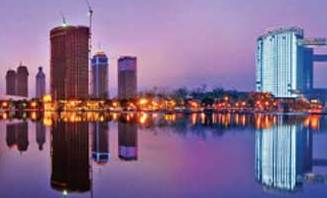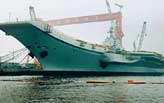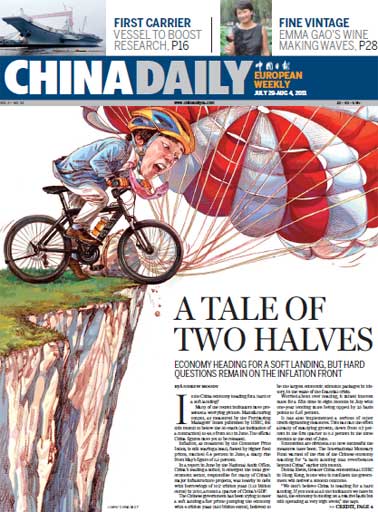Center
'Stinky Stratford' holds its breath
Updated: 2011-08-02 08:19
(China Daily)
One of Britain's most economically deprived areas will be the main gateway during the Olympic Games.
One builder said the majority of construction jobs earmarked for locals on the Olympic site had gone to east Europeans who were prepared to accept lower wages.
"It is not the easiest site to get on," Andrew Wilson, 41, said.
Fred White, 77, who was finishing a pint of beer in a pub on Stratford High Street, also suggested construction jobs were going to people from outside the area, judging by the number he had come across wearing distinctive yellow safety vests.
"I have heard Birmingham accents, northern (England) accents and foreign ones wearing a yellow jacket, but I have not heard a (local) cockney accent," he said.
Billions of pounds are being invested in the area ahead of the Games, and 11,000 new homes built.
However, sales assistant Alan Bacon, 54, said: "Locals will be priced out of buying any of the new homes. They will be bought by the City boys (financial district workers) as second homes or by east Europeans."
Many locals said they had not applied for Olympic tickets, and those who had were unsuccessful.
"I have three sons and I don't remember any of them saying they are looking forward to it," said Ronald Harvey, 79, who has run a fish stall selling whelks and jellied eel since he was a boy. "The price of the tickets has turned them off."
Shopping mall
The first thing Olympic visitors will see next July and August when they get off the train at Stratford station, which has had a 125-million-pound ($200 million) refit, will be the new 1.5-billion-pound Stratford City with its huge Westfield shopping mall, the biggest of its kind in Europe.
The center, which has all the big retail names lined up ahead of its autumn opening, dwarfs Stratford's old shopping center across the road, with its market stalls including Harvey's fish stand, shops advertising goods sold for under a pound, and pawnbrokers offering to buy gold "in any condition".
Stratford City, which will also eventually have hotels and a commercial center, is the kind of investment politicians were hoping for when they envisaged the Games acting as a catalyst for regeneration of a part of London that has always been a poor relation to the glitzy West End.
Some areas have already undergone a transformation since the nearby docks closed in the 1970s with an estimated loss of 20 percent of the total local workforce.
Canary Wharf has developed into a financial center with its landmark skyscrapers which will form a soaring backdrop to the Park, but the changes have mainly resulted in pockets of wealth.
The five boroughs around the Olympic Park still share some of the lowest employment rates in Britain, compounded by low educational and skills qualifications.
Transforming the 2.5 square km of land into the Olympic Park first required a huge clean-up after decades of contamination from the industries that gave "stinky Stratford" its name, including bone, soap and tallow works, as well as distilleries, engineering and chemical plants.
Petrol, oil, tar and poisons such as arsenic had seeped into the soil, while shopping trolleys and fridges had been thrown into the waterways.
The Olympic Park, athletes' village and Stratford City are expected to create 30,000 jobs with about 25 percent of the Olympic workforce coming from the five boroughs.
It is still not easy to find a job, however. A 41-year-old woman outside of Stratford's job center said 500 people had applied for the same job of sales assistant as she had.
Health centres
Property sale and rental prices have failed to take off as anticipated after an initial spurt, partly due to the economic downturn.
House prices are expected to rise by about 14 percent once the Olympic site re-opens to the public as the Queen Elizabeth Olympic Park a year or two after the Games, though the planned creation of some 11,000 new homes could swamp the market.
"We have had hysteria but the Olympics have not necessarily had a major effect," Daniel Barbanel, sales and marketing director at Outlook residential property agents, said.
He anticipated the infrastructure and the planned schools and community health centers would be a boost.
Professor Thomas Kubi, a retired local lecturer who failed to get tickets for the 100 meters and long jump, said the Olympics provided a great marketing opportunity.
"Stratford now has a brand. It has good infrastructure - everything to make it sustainable. Look at Canary Wharf - Stratford will be another Canary Wharf," he said.
In the shorter term, locals were divided on whether they would watch the Games on television.
Lisa Dilworth, 35, who works in a jewellers in Stratford's old shopping center, said she would watch with her three-year-old daughter after failing to get tickets.
"It's good to encourage kids to do something," she said.
However, her colleague Jon Rice, 41, said although he had watched other Olympics, he would not be watching London.
"It doesn't suit it over here," he said.
Reuters
E-paper

Double vision
Prosperous Hangzhou banks on creative energies to bridge traditional and modern sectors
Minding matters
A touch of glass
No longer going by the book
Specials

Carrier set for maiden voyage
China is refitting an obsolete aircraft carrier bought from Ukraine for research and training purposes.

Pulling heart strings
The 5,000-year-old guqin holds a special place for both european and Chinese music lovers

Fit to a tea
Sixth-generation member of tea family brews up new ideas to modernize a time-honored business
